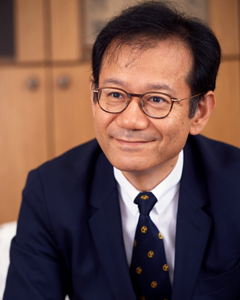Comprehensive Research
Research period:from December, 2021 through November, 2024
The social impact of the COVID-19 pandemic is widespread, and as a result, the fear of a pandemic has astonished the world. On the other hand, the biggest problem the world has experienced is the gap between science and policy, and WHO is no exception. In Japan as well, virus, public health, and respiratory clinical experts were invited to the government's expert meeting, but their academic advice remained within the classical framework such as epidemiological prediction models, and was considered to be effective medical care. It has not been able to provide insight into how to balance the economy. Also, economists invited to the government's subcommittee appear to be inconsistent with the value standards for "value-based medicine," and have not been able to propose policies to deepen economic knowledge in corona measures.
With above our awareness of the issues, we would like to focus on the following three items as the purpose of this research.
A team of ISPOR experts will be formed in Asia, North America, and Europe to conduct joint research. We aim to compile policy proposals by compiling research results into symposiums and literature so that we can respond based on scientific knowledge when the next pandemic occurs.

Hiroshi Suzuki, Professor,
Graduate School of Public Policy, The University of Tokyo
Graduated from the University of Tokyo, Faculty of Law in 1986. After joining the Ministry of International Trade and Industry (MITI) and serving as an associate professor at Keio University SFC, he became a member of the House of Councilors for 12 years from 2001, serving two terms as State Minister of MEXT during his tenure. 2014-present: appointed professor at the University of Tokyo, Graduate School of Public Policy and Keio University SFC (until January 2023, the first cross-appointment in Japan). Since 2015, he has served as Ministerial Aide to the Ministry of Education, Culture, Sports, Science and Technology and Assistant to the Minister of Education, Culture, Sports, Science and Technology (four terms), and Acting Chair of the G7 Education Ministers' Meeting in 2016.
The Hitachi Global Foundation
"Hitachi Fund Support for Research Related to Infectious Diseases" Administrative Group